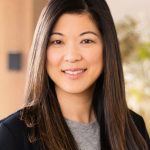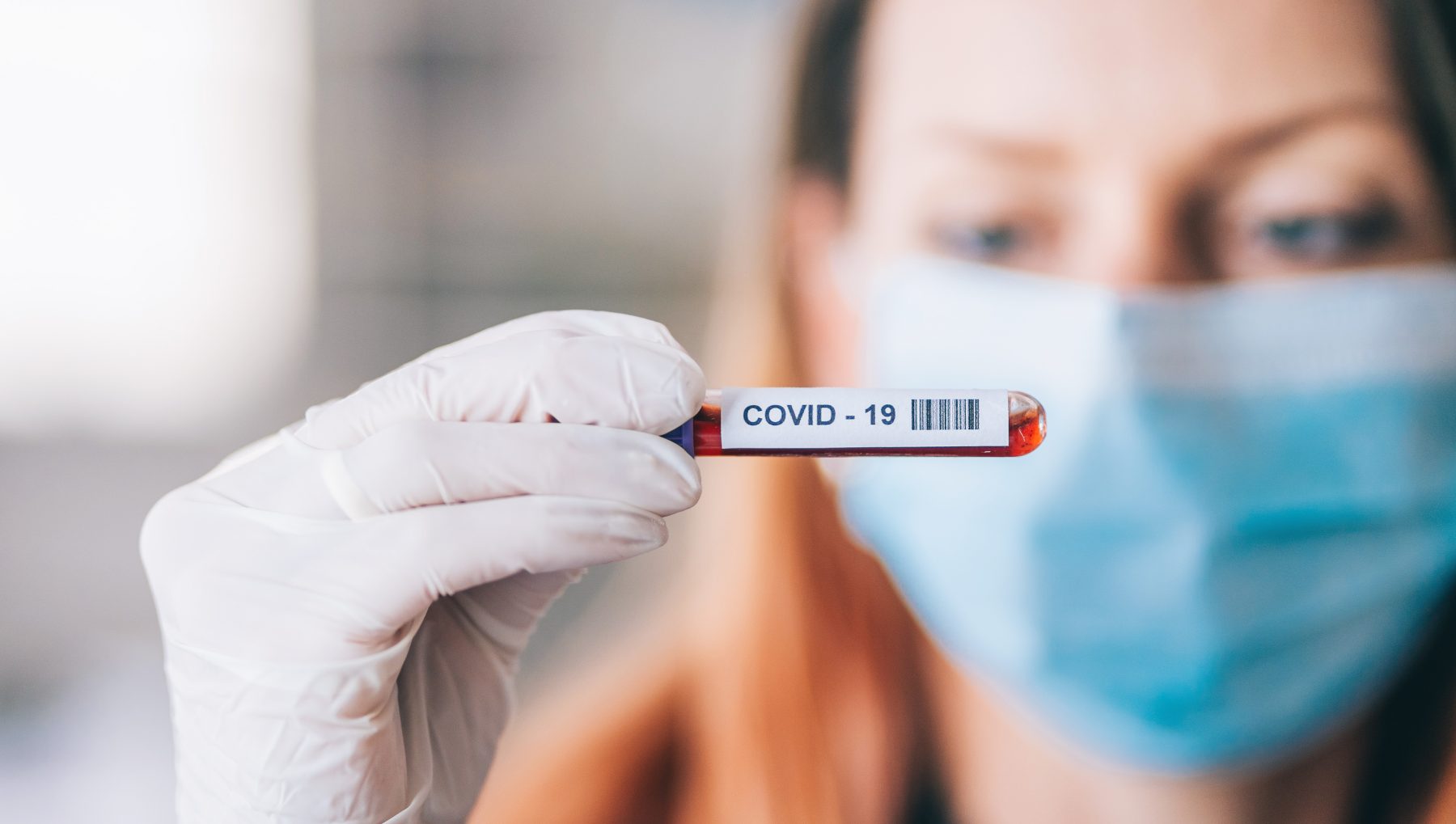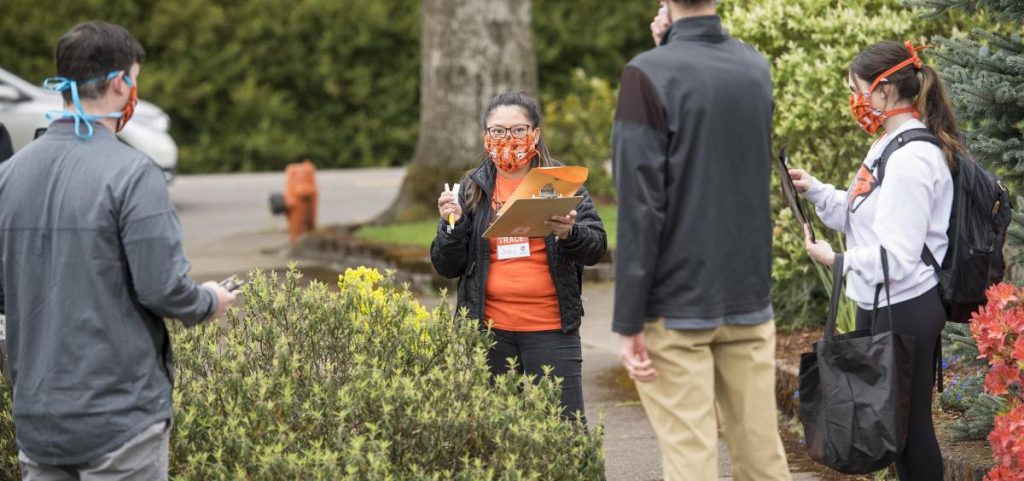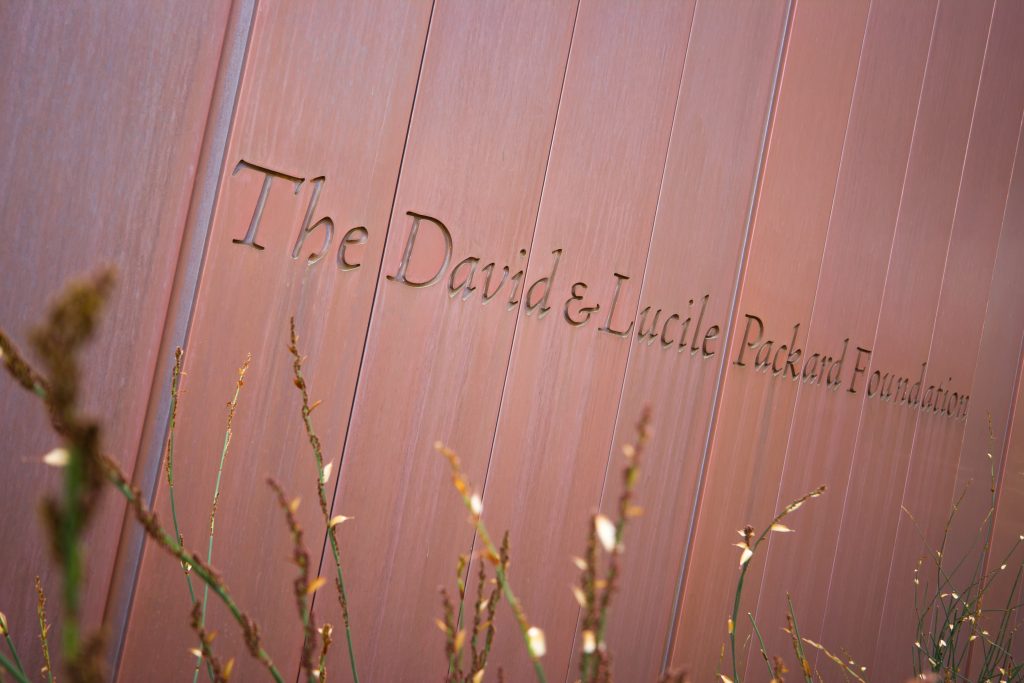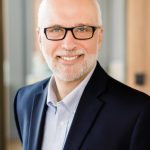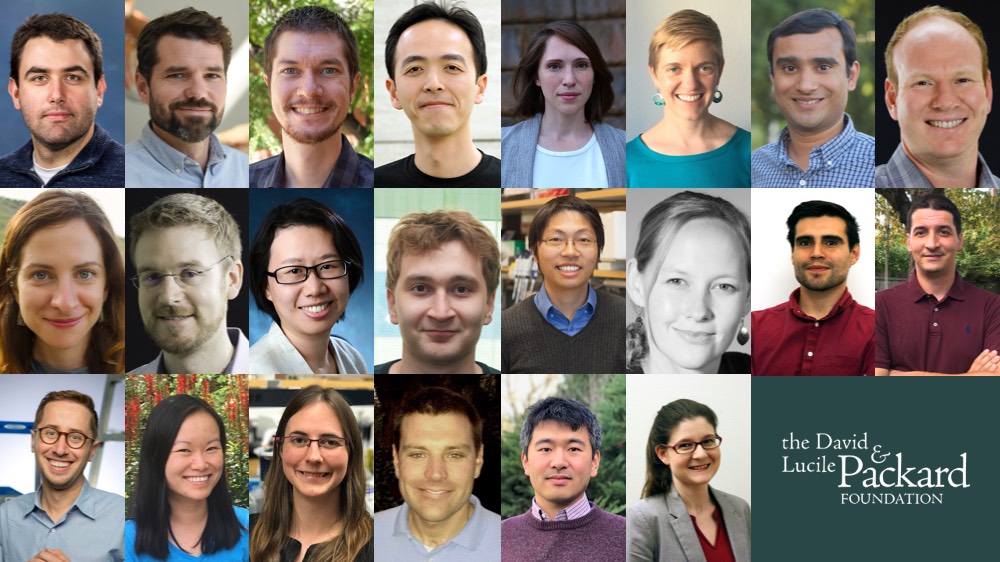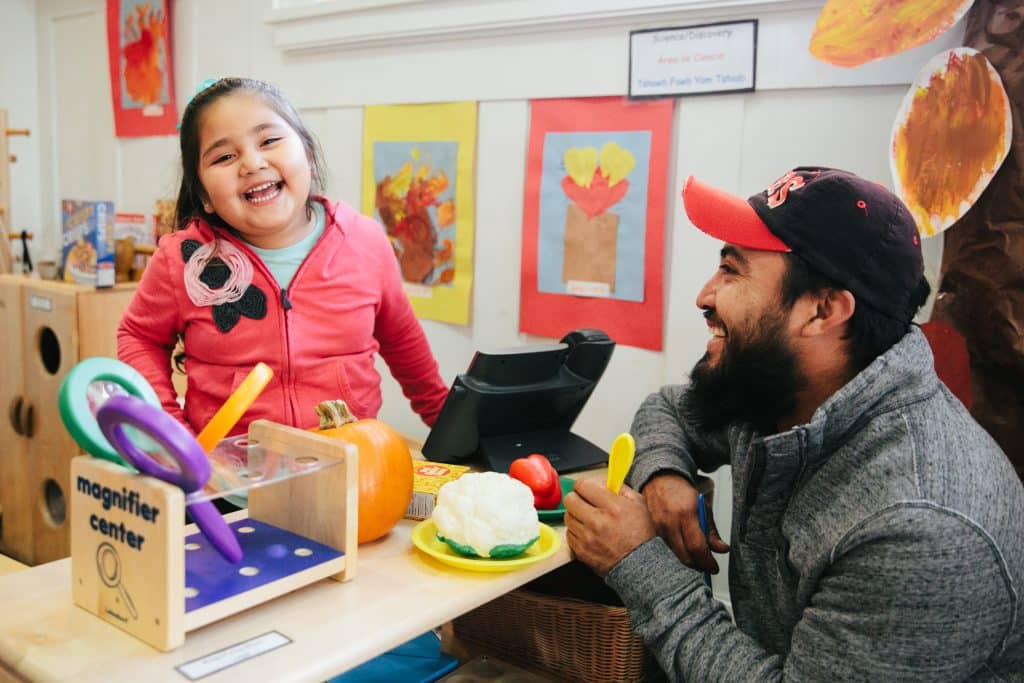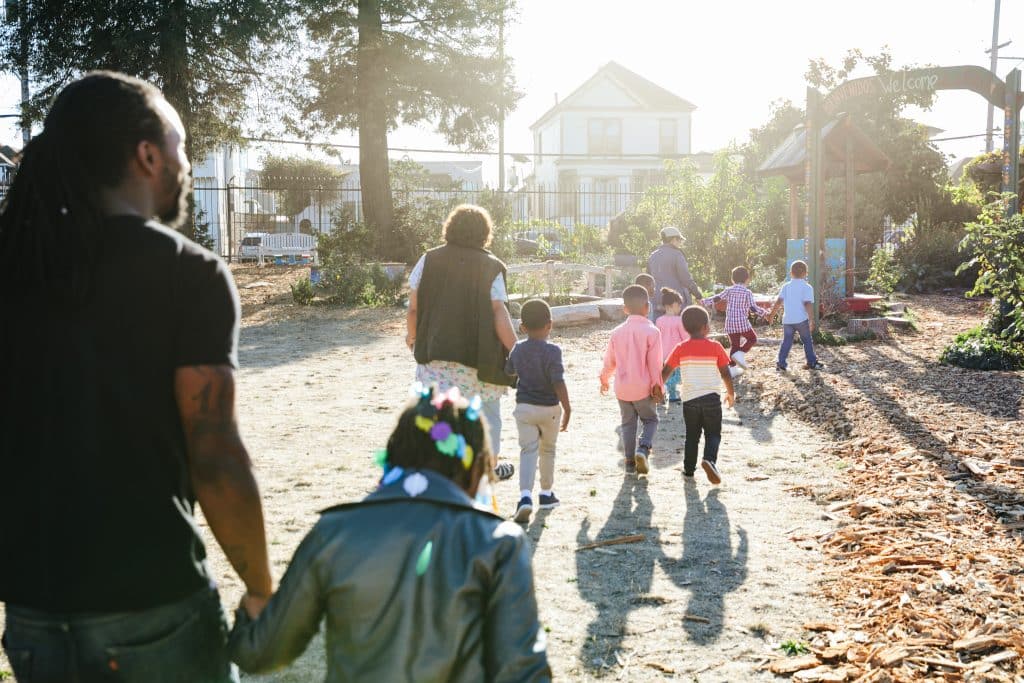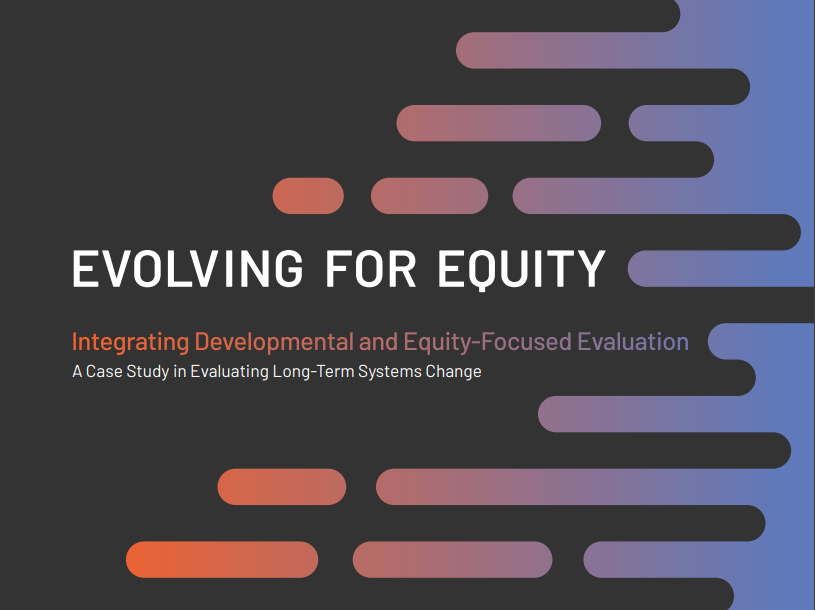Back in 2013, I traveled to the East Coast to interview two dozen or so Packard Fellows for a video commemorating the 25th anniversary of the Packard Fellowships in Science and Engineering. As manager of the Fellows program since 2004, I was excited to visit with so many Fellows in their native university habitats.
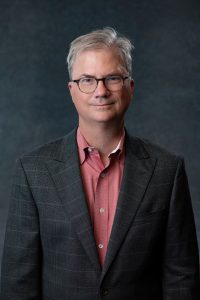
It was then that I first met Holden Thorp, 1991 Fellow, distinguished chemist and at the time, Chancellor of the University of North Carolina, Chapel Hill. I had long heard about Holden’s approachability, down-to-earth wisdom and mentorship of faculty and students, alike. During our time together, he spoke about the tremendous impact flexible grant funds can have on an assistant professor’s career. He shared stories of when he was a Fellow and met David Packard in the early 1990s. But it was Holden’s good-natured agreement, as Chancellor of UNC, to make the trek into Blue Devil territory (meeting me at Duke University) that really solidified his generosity and support of the Fellows program. I was a bit embarrassed that, due to logistical limitations, we needed him to meet us at his biggest rival’s campus, but Holden put me at ease, we shared a few laughs, and all was forgiven.
After more than three decades in academia, in 2019, Holden was named editor-in-chief of Science magazine, which has the largest paid circulation of any peer-reviewed, general science journal in the world. He is only the 21st editor-in-chief since the journal’s inception in 1880—and what an unprecedented time to step into this leadership role, elevating and advocating for the voice of science. I was inspired by the passionate plea outlined in his now famous editorial, and it made me think deeply about the relationship between science, society, and even my work with the Packard Fellowships.
Here at the Packard Foundation, our work is grounded in science, and we believe it has the potential to create lasting change. In the midst of the COVID-19 pandemic, as the world turns to science for answers, we reached out to Holden to hear his views on the relationship between science and society, and what the nonprofit sector can do to strengthen that relationship.
While shelter-in-place prevented us from meeting in person to chat (I would have traveled to his office this time, if I could), Holden was, again, both inspiring and pragmatic in sharing his perspective and insights on the role of science today.
Xiao-Wei: You recently wrote about the importance of grounding important public health decisions in science. What has COVID-19 revealed about our society’s current relationship with science?
Holden: I think the good news is that this has revealed that a large portion of society has a great deal of confidence in science. If you look at the polling, it’s about 75% of Americans who want the governments to follow the science. The rise in popularity of [Dr.] Tony Fauci is probably the best indicator of this. Unfortunately, it has also revealed that 25% of Americans have been convinced by bots and cable news that they shouldn’t trust science.
Xiao-Wei: What are some ways the Science family of journals is making COVID-19 research and news relatable to society more broadly, and what advice do you have for others trying to make science relatable to a broader audience?
Holden: Our numbers are through the roof. Because we have such an outstanding news division, we have a lot of the big stories before our competitors and have a lot of credibility in the space. Reporters like Jon Cohen and Kai Kupferschmidt have been covering pandemics for decades, and we are seeing the benefits of all of their work now. The editorials have also seen a huge boost from COVID-19. When I came on board, American Association for the Advancement of Science CEO Alan Leshner told me that he wanted more controversial positions in the editorials, which I had been doing in a small way, but this has opened up an extraordinary opportunity for us to be a voice for science. We don’t really imagine that the editorials are being printed out and placed on the Resolute Desk to be read by the President. Rather, we try to say what we know a lot of our readers are thinking to relieve them of some of the agony of seeing science twisted in dangerous ways. We are also pushing the research side through as quickly as we can. We had the structure of the spike protein of SARS-CoV-2 out on February 19. Seems like a hundred years ago. Back then we thought that this would be a localized outbreak like SARS or Ebola, but we still felt a strong sense of urgency to get things out. There has been a real flood of great stuff going from there, particularly on structural biology. We have had the first structure of most of the important proteins and antibodies.
Xiao-Wei: How can the nonprofit sector specifically—including funders in philanthropy, nonprofit organizations, and nonprofit leaders—better support the role of science in society?
Holden: Hard to think of how a better job could be done than what the Packard Foundation does if you go all the way from the Monterey Bay Aquarium to the Fellows Program. That’s the best of informal science education and the best of research. I think the only thing we can do is try to give voice to the part of the citizenry that isn’t as vocal that appreciates what we are doing. The extrema have always gotten the most airtime, but social media and cable news have exacerbated that. The person who goes to the Aquarium and sees the wonder of the oceans and has their life changed doesn’t get enough attention. They’re not screaming on cable news at night. They’re living their lives thankful for medicine, technology, and the wonders of nature. Somehow figuring out how to tell those stories is what matters.
Xiao-Wei: At the Packard Foundation, we invest in early-career scientists and basic scientific research, in part because we understand that scientific discoveries mount over time as we gather more data and research. What do you think are some big lessons COVID-19 has already taught us as a society for the future?
Holden: It has taught us a lot about the importance of basic research. Imagine where we would be right now if we didn’t have PCR [Polymerase Chain Reaction, a molecular biology method used to quickly make millions to billions of copies of a DNA sample]! With all the problems with testing, it could have been a lot worse if people hadn’t been thinking about the basic science of DNA replication. Now think about cryoEM [Cryogenic Electron Microspy, a method that allows for imaging biomolecules with precision]. A lot of the early structures of the key proteins have been from crystallized proteins, but cryoEM has moved us so far in terms of antibodies and drugs.
On the public health side, the picture is not so encouraging. There has been commentary about how much nicer the medical school buildings are on our campuses compared to public health. This is a readout of the priorities. We need massive investment in public health. And as I’ve been saying, it’s said some discouraging things about the public’s views of science, but we can only combat that by doing the greatest science we can. A few of us like [Drs.] Francis Collins and Fauci are extraordinary communicators who can speak to very wide audiences, but for most of us, it’s best to let the data do the talking.
Xiao-Wei: We have followed your career from your days as an assistant professor, to chancellor/provost roles at prestigious universities, to currently leading the Science family of journals. With the perspective you have gained, what is the one piece of advice you would give to scientists (and others in careers that help facilitate and drive scientific research) in this new era where science seems to be at the very heart of the current crisis?
Holden: As a lot of folks have been saying—we’ll get through this. Scientifically, we can tell that the virus is conquerable with the combination of behavior, drugs, and vaccines that science can produce even though it’s going to be a long road. The psychic and social challenges are tougher. We need to be sure not to lose the scientists of the future, particularly when we know that the inequities of the world and the country are only going to be magnified by this crisis. So, supporting our students as they go through this has never been more important. Socially, I worry that our institutions will be even less equitable when this is over. The institutions represented by the Packard Fellows will all survive. The question is do they make the right choices in terms of protecting their communities now and in the future.
At the same time, the administrators are in a tough spot. I’ve been there multiple times. They have a lot of hard decisions to make and the governing boards usually want something different from the faculty and students. The board tends to think a lot about the competitive position of the university against its peers, and the campus tends to focus more on whether the university is living into its professed values around equity and scholarship. The best faculty colleagues are the ones who unapologetically stand and advocate for the right things while understanding the pressure the administrators are under. The best places are the ones where the tension is healthy but ultimately productive. That’s a two-way street and some administrators don’t engage with critique, but most of these great places can handle robust debate.
Holden Thorp is Editor-in-Chief of the Science family of journals, and a 1991 Packard Fellow.
